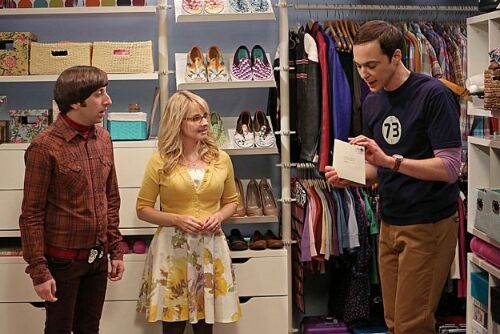This essay has been inspired by an episode of the TV series The Big Bang Theory. We were introduced to the lovable characters of the show in 2007. The Big Bang Theory is about seven people living in Pasadena, California: Leonard Hofstadter and Sheldon Cooper are both physicists at Caltech and share an apartment; Penny is a waitress who really wants to be an actress and lives across the hall; and Leonard and Sheldon’s nerdy and socially awkward friends and co-workers, aerospace engineer Howard Wolowitz and astrophysicist Rajesh Koothrappali, who join them for dinner all the time.
But this specific story is about Howard. Apart from being an engineer, he can be a bit of an obnoxious creep when it comes to his pursuit of women. But as his storyline progresses, we get more perspective about his life and learn about how his father walked out on him when he was 14. He leaves behind a nerdy, lonely Jewish kid who continues living with his mother for years; a kid left debating questions about parental love and whether it was there or not.

‘The Closet Reconfiguration’ is the 19th episode of the sixth season of The Big Bang Theory.
The episode I refer to is the called ‘The Closet Reconfiguration’. In the episode, Bernadette (Howard’s girlfriend, he does finally manage it) and Howard invite the gang over for dinner. The two lament about their untidy closet and worry about cleaning it. Howard suggests that they ask Sheldon to do it for them. Sheldon, known for his compulsive need for cleanliness and order, agrees.
While cleaning the closet, Sheldon comes across a letter sent to Howard by his father. He opens it out of the sheer need to know how to categorise it.
Howard, angry with his father, had not read the the letter and avoids talking to Sheldon about it when Sheldon mentions it to him.
And yet, Howard is unable to sleep that night because of it. As the episode continues, everyone except Howard finds out what was written in the letter and Howard has no way of knowing except to ask them – because he had decided to burn the original letter. He is hurt and angry with the gang for snooping and for sharing the contents of the letter with each other. So now everyone except Howard knows what his father had written to him in the only one snippet of communication he had with his son since he left.
The gang feels bad and comes up with an interesting solution. The all come Howard’s place and make him listen to varied versions of what could have been written in the letter, and say that only one version would be the truth.
This way, Howard knows and does not know at the same time.
This is epistemic ambivalence. Sheldon explains it by talking about quantum states of matter. Sheldon’s solution to Howard’s dilemma is explained through the principle of quantum superposition. Quantum superposition is a physics term that describes the manner in which quantum particles appear to exist in all states simultaneously. Niels Bohr, a Danish physicist, proposed the Copenhagen interpretation, which revolves around quantum superposition.
Another episode called ‘The Tangerine Factor’ (season 1, episode 17) had spoken of the 1935 thought experiment by Erwin Schrödinger which attempted to demonstrate the limitations of quantum mechanics – he imagined that a cat is locked in a box, along with a radioactive atom that is connected to a vial containing a deadly poison. If the atom decays, it causes the vial to smash and the cat to be killed. When the box is closed we do not know if the atom has decayed or not. Therefore, the cat is both dead and alive at the same time.
My father left when I was 14 too – he died, and not unexpectedly. But this is not about bereavement. Because even before he died, I don’t remember a whole lot of quality time spent with him. Don’t get me wrong, I loved my father. I loved the limited time that we spent together. He would take me out to eat dahi vada and pani puri and I would sit next to him by the yard and smoke fake Phantom cigarettes with him because I wanted to do the things he did.
I do have some good memories, some being the operative word because I think I lost him when I just started to understand what a father is. A teenager needs their parents more than you can imagine and losing a father as a teen was very hard.
But today, when I think of the man my father was, or that man that I thought he was, I think I romantisised him sometimes. I have heard, over the years, that he wasn’t always keen on being a father. That he would have rather spent time with his machines than with a child, or that he would always be away or maybe always wanted to be away. I don’t remember him saying a kind word to me. But I do not think that he did it out of malice.
You see, my father was much like Sheldon – less people, more work. And he couldn’t help it.
But today, I wonder – would I really want to receive that one last letter from him? A letter telling me that he loved me? Or that he really didn’t much care for being my father?
I rather prefer epistemic ambivalence.
Bhasha Mewar is an art historian and clinical psychologist who likes to write about personal experiences and the impact of pop culture on our lives.
Featured image credit: CBS

